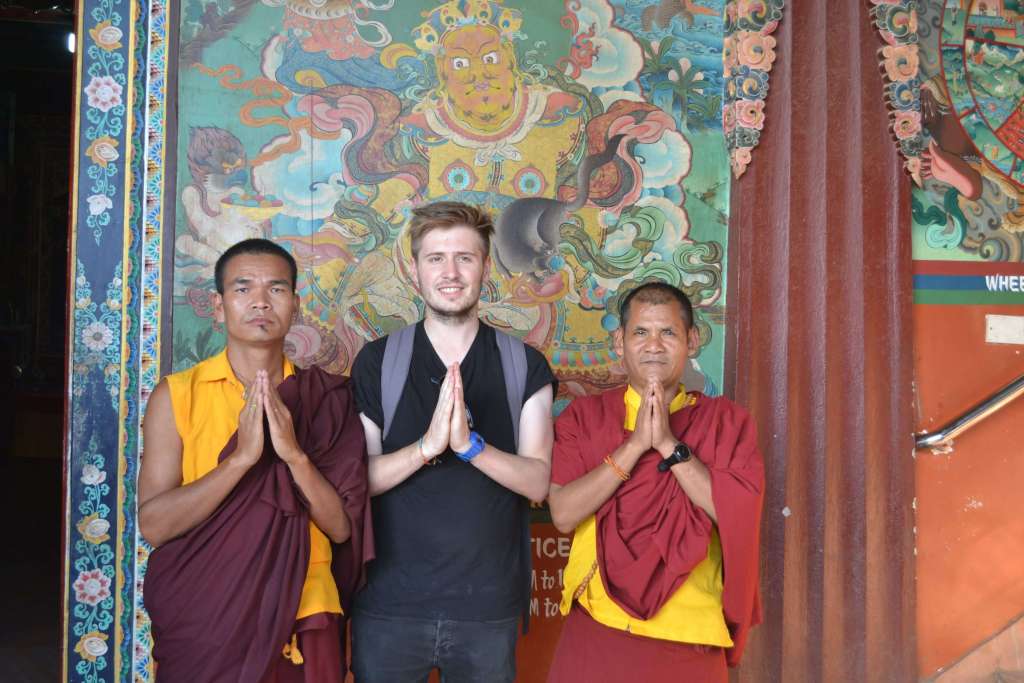There are many elements you should consider if you want to be an ethical volunteer. Firstly, it’s about making sure the organisation you go with are working ethically to create solutions to different global issues. Searching for keywords such as ‘sustainable’ and ‘eco-friendly’ is a good start if searching online. Secondly, you must ensure you’re ethical in what you agree to, as by backing out last minute or going home early, you can leave others in a bad position that could give a negative impact to the work you’ll be doing. These steps should give you a rough idea of what you should be aiming for to make sure you have an amazing volunteering adventure, while also being an ethical volunteer…
Step one: Assess your traits and skills
A very important part of deciding which volunteering trip to go on starts with working out your own assets and skills.
First, start with a quick personality assessment: What are you good at? What do you enjoy most? What do you never get bored of doing? These are all important questions to ask yourself, to work out which type of project you’d genuinely be good at to help the charity or organisation you’ll be working with. Part of being an ethical volunteer is working out how you can help the most! If you’re a really active person who enjoys being outside, there’s no point signing up to a research based project where you’ll be stuck in an office all day. Especially when there are loads of amazing options where you can volunteer with kids outside, teaching them to play your favourite sport!
Secondly, take another browse across your CV. This may seem like an odd step if you’re simply going for a gap year and not for career-related reasons, but having another look over your experience and your future goals will help to make a sensible choice. There are areas that will directly benefit you when later applying for a job. It’s not good to waste valuable time when you can still have fun and push yourself forwards at the same time! This will also be beneficial for the organisation you’re approaching. If the project is relevant to you, you’ll be able to bring existing skills and knowledge to the role, making you an asset to the company you work for. It’s ethical to remember that you’re there to help and make a real difference.
Step two: Create a question checklist
In order to find out all the information you’ll need to make an informed decision, you need to be asking the right questions! When you narrow your search down to a handful of options, remember to find out the answers to these questions. Often the information will be online already, but if you can’t find it drop them an email or give them a call. Keep this list in front of you throughout your entire search, prioritising those questions you feel are most important to you or your line of work/volunteering. Failure to remember to ask these could leave you in a sticky situation down the line!
Here are all the questions you should make sure you ask: (These may vary depending on your trip!)
What will my daily schedule be like? (This should include a question about how much free-time you’ll get. All work and no play is no way to spend the entirety of your trip!)
Do you have a place online where I can read reviews of other volunteers who have done the same project as me?
How long has this particular project been running?
Are there any photos of the work that’s been completed so far? (Seeing before-and-after shots is a good way to assess how much the previous groups have done!)
How many other volunteers will I be working with?
What sorts of things do I need to bring with me?
Are there any specific rules or regulations I should be aware of?
Where will I live, and who will I live with?
What are the main goals that we’re aiming to achieve while I’m there?
What safety precautions do you take to make sure volunteers are looked after?
What’s the weather/temperature like?
Where will my money go to? (This can help you to make sure the organisation is confident where your money is spent. You also need to make sure you know what you’re paying for!)
Are there any skills I need to develop or perfect before I come out?
You should remember that you’re not just asking questions to check out the project, and their own ethical tendencies, but also to check you are responsible enough and suited to the project in question. It’s a two-way street, and you must hold up your end of the bargain!
Step three: Research
The key to making sure you have an incredible time away volunteering is doing a lot of research before you begin to book anything.
Work out which topic you care about enough to research
The first thing to work out is what area you’d like to volunteer in. It could be something vocational to help you advance in your career, it could be something close to your heart, it could be something you may feel like you won’t get the chance to do again. Whatever you decide to do, it must be something you’re interested enough in to not get bored half way through your course abroad! You can choose from working with children, animals, or campaigning against inequality, you could build a school or shelters, or you could work on sports with kids. The list goes on and on, so research into this is very important!
Look into all your possible options
Don’t just fall for the first fancy looking website you come across! You need to look into all the options to make sure you make the right decision. Make a list and note down your favourite programmes so you can begin to narrow it down in time. Taking your time on this will make you more likely to feel happy with your final choice and allow you to get excited about your plans!
2. Use all the tools you have available to you
The beauty of modern society is that there are so many methods to finding the information you want! You can search online, read books, leaflets, talk to volunteering experts, talk to your college or university about their suggestions, or some travel agents have special advice for those considering volunteering abroad. Remember, you’ll never have the time to find out everything and however annoying this can be, you should also remember that this means there is endless information to learn and get your head around! Treat it as an exciting learning process, where are the end of it all you may become an expert in a brand new subject. In future, you can guide others and encourage people to work for the same cause that you did!
3. Make the call!
If your search is feeling endless, sometimes the best thing to do is call! If you find a volunteering company you like the look of, why not give them a phone call to discuss the options? It’s much quicker than trying to have an email conversation and often you’ll be able to explain your situation in much more detail and much more freely. Young people especially find it a bit of a challenge to pick up the phone and speak to people they don’t know. But, this can put you ahead of the game if perhaps you’re competing for a place on some projects because less people will think to do this! Making yourself stand out is a great way to step ahead and take lead in the race. Never forget the power of the phone call!
4. Practice, practice, practice!
If you find out you need to know a little bit of the language, make sure you pick up a phrase book or download an educational app to teach yourself before hand. If you’ll be teaching tennis to disadvantaged children, hit the courts with a friend and play some tennis! If you’re going to be working with animals, do some extra online research to make sure you know what to do in different hypothetical veterinary situations. The point is, whatever you’re doing, you’ll need to show you can be capable and useful to the team. Perfecting your skills before you get there will ensure you are a valued member of the team, and will have your volunteering program begging you to come back for more!
Step four: Work out your budget
Different projects will require different amounts of money to be funded yourself. Sometimes you can raise the money with the help of family and friends, by setting up a donations site to ask people to put money towards the charity if it’s for a worthwhile cause. Or, alternatively you can raise the money yourself by working full or part time. Whichever way you decide to raise or earn the money, you need to work out how much you can commit to, to make sure you don’t promise a payment you can’t deliver.
The time you decide spend in whichever country you choose will also affect how much money you’ll need. If you go for two weeks, you’ll need a lot less than if you go for 6 months! Of course, the further away you travel, the more likely it is to cost much more. To make sure you do good for the charity or organisation, you need to make a plan and make sure you can fund whatever you’re responsible for.
Step five: Make sure you know what to expect
Talk to people who have done the project before, read reviews online and discuss your options as much as you can. The worst thing for the organisation would be to have people turn up thinking they’d be doing one thing, to find out they’re doing something totally different. Whatever method you choose, make sure you find out exactly what’s going to be happening every day you’ll be on location.
Step six: Check if you’re rightly qualified
Check you have the right qualifications to do whatever project you’re looking into. The chances are, if you aren’t qualified to do it at home, you shouldn’t be doing it in another country either without correct documents and paperwork. Protect yourself by doing your research and talking to careers advisors in your home country to make sure you’re being organised and responsible.
Step seven: Make sure you are happy with your final choice
In order to be responsible and therefore ethical, you must make sure you are ready to give 100% to whichever project you sign up for. The last thing the company will need is for you to pay a large sum of money, arrive at the camp, do a few days’ work, to then realise you’re not bothered and would rather spend your summer at home with your friends! Commitment is key, and in order to be an ethical volunteer, you must be willing to give it your all and stay as long as you originally agree to do.
It’s great that you’re taking the time to look into the ways you can make sure you’re an ethical volunteer to begin with. The more research you do and the more people you talk to will help make sure you make the right decision for you, and for the cause you want to work for. Take the time in deciding your goals and things you want to make a difference in and the rest should eventually come together. You’re not alone, many people take the leap and sign up for amazing projects all over the world. Thousands of tools are available now, to offer you more opportunities than have ever been available before. Good luck in your search!
Share this Post


